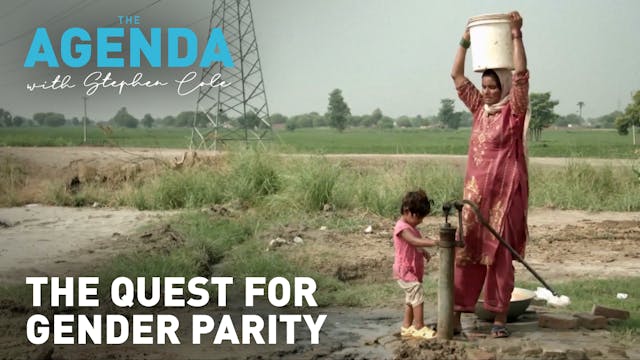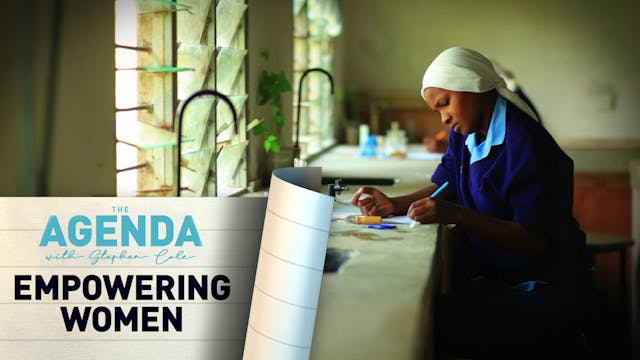Saving life on Earth: The Agenda with Stephen Cole
The Agenda
•
29m
The United Nations has declared that nature is declining globally at a rate unprecedented in human history. So never has there been a more urgent need for the world to come together to address the biodiversity crisis.
And yet the chance to do that - COP15 - has now been delayed for over a year thanks to the COVID pandemic. It will begin on October 11th- but only in virtual form. It will be another six months – April 2022 – before stakeholders can meet in person in Kunming.
So, on The Agenda this week, Stephen Cole examines what that delay really means for the future of our planet.
First, he talks to the person in charge of the summit – Elizabeth Maruma Mrema, the Executive Secretary of the UN Convention on Biodiversity, who tells us that in fact the COVID delay has given everyone a chance to talk online, and explains why she hopes that could mean COP15 will lead to truly achievable goals.
Stephen also visits the Royal Botanic Gardens at Kew in London to speak to Professor Alexandre Antonelli, Kew’s Director of Science about what needs to be done to protect the 40 percent of the world’s plant life now at risk of extinction.
And he also speaks to Professor Wei Fuwen, from the Chinese Academy of Sciences’ Institute of Zoology about how the Giant and Red Panda provide an object lesson in how to save a species.
Watch #TheAgenda in full and find out more at:
https://www.cgtn.com/europe/the-agenda 📲
Follow CGTN Europe on social media and other platforms👇🏼
https://stories.cgtneurope.tv/follow-cgtn-europe/index.html
Up Next in The Agenda
-
The view from Kew: The Agenda
40 percent of the world’s plant species are now threatened with extinction. Changes in land use, deforestation and climate change have devastated the planet. 🌎
So, what’s the solution? Stephen Cole went to the Royal Botanic Gardens at Kew – which have recently taken the world record for the lar...
-
THE QUEST FOR GENDER PARITY - The Ag...
WHAT’S THE ISSUE?
There is some debate over the exact figures - but what is clear is that the majority of the world's poor are women.
Women are more likely than men to be out of the labour market doing unpaid care work - and when they do have jobs more likely to work for low wages in informal job... -
EMPOWERING WOMEN - The Agenda with St...
As part of CGTN’s continuing focus on poverty alleviation, this week on The Agenda with Stephen Cole we look at empowering women.
Women are still more likely than men to live in poverty. They’re more likely to have to live outside the education system and outside the labor force and more likely ...



